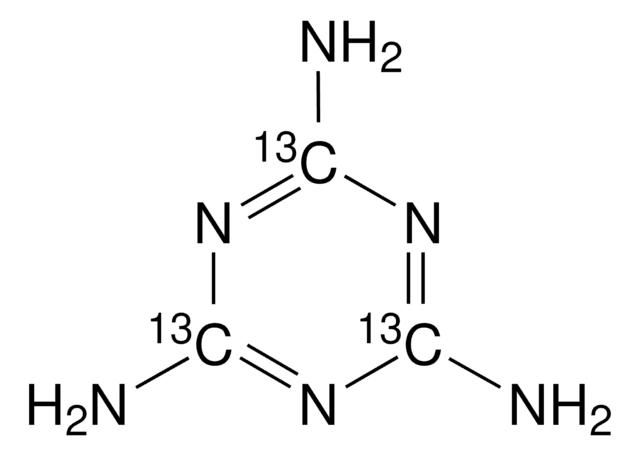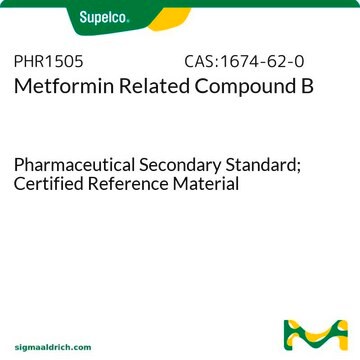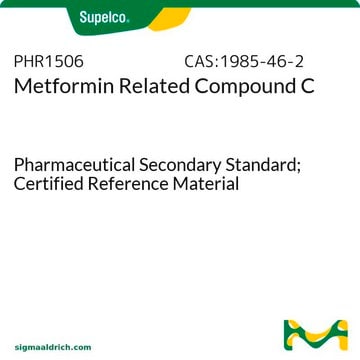PHR1274
Melamine
Pharmaceutical Secondary Standard; Certified Reference Material
Synonym(s):
2,4,6-Triamino-1,3,5-triazine, sym-Triaminotriazine
About This Item
Recommended Products
grade
certified reference material
pharmaceutical secondary standard
Quality Level
Agency
traceable to USP 1379183
API family
melamine
CofA
current certificate can be downloaded
technique(s)
HPLC: suitable
gas chromatography (GC): suitable
mp
>300 °C (lit.)
application(s)
pharmaceutical (small molecule)
format
neat
storage temp.
2-30°C
SMILES string
Nc1nc(N)nc(N)n1
InChI
1S/C3H6N6/c4-1-7-2(5)9-3(6)8-1/h(H6,4,5,6,7,8,9)
InChI key
JDSHMPZPIAZGSV-UHFFFAOYSA-N
Looking for similar products? Visit Product Comparison Guide
General description
Melamine is a nitrogen-rich chemical employed in the production of plastics, resins, laminates, adhesives as well as flame retardants. It may also be utilized as a fertilizer. It is one of the metabolites of cyromazine, which is approved for use as an insecticide on a wide range of vegetable crops.
Application
Analysis Note
Other Notes
Footnote
Recommended products
related product
Signal Word
Warning
Hazard Statements
Precautionary Statements
Hazard Classifications
Carc. 2 - Repr. 2 - STOT RE 2
Target Organs
Urinary tract
Storage Class Code
11 - Combustible Solids
WGK
WGK 1
Flash Point(F)
572.0 °F - closed cup
Flash Point(C)
300 °C - closed cup
Choose from one of the most recent versions:
Already Own This Product?
Find documentation for the products that you have recently purchased in the Document Library.
Customers Also Viewed
Our team of scientists has experience in all areas of research including Life Science, Material Science, Chemical Synthesis, Chromatography, Analytical and many others.
Contact Technical Service









